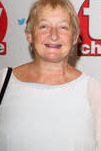
The coronation at Westminster Abbey will combine centuries-old rituals with a reflection of modern diversity.
King Charles III is set to be crowned in a grand ceremony at Westminster Abbey, presided over by the Archbishop of Canterbury, Justin Welby. The coronation, steeped in tradition, will culminate in the placing of St Edward’s Crown on the King’s head, followed by the resounding cries of “God Save the King” echoing through the abbey.
On the eve of the event, Archbishop Welby described the coronation as “a profound celebration of who we are today in our wonderful diversity,” combining “majesty and sacred wonder” with a message of “ancient wisdom and new hope.”
The event will host around 100 heads of state, members of royal families worldwide, and notable public figures, including David and Victoria Beckham, musician Lionel Richie, French President Emmanuel Macron, and US First Lady Jill Biden. President Joe Biden will not attend. Celebrities and invited guests will join everyday heroes and close family members, including Prince Harry, in the historic celebration.
In addition to the ceremonial splendour, the day will feature an extraordinary display of military pageantry. Over 9,000 servicemen and women will participate, with 7,000 performing ceremonial roles, making it the largest military operation since Queen Elizabeth II’s 1953 coronation. The King and Queen will process through London streets in a spectacle promising unforgettable grandeur.
A surprise walkabout on The Mall on Friday saw a relaxed King Charles accompanied by the Prince and Princess of Wales. Kate described the coronation as “a wonderful moment for celebration,” sharing that her children were “excited, though a bit nervous, for the big day ahead.”
Security for the event, under the codename Golden Orb, will involve 11,500 police officers, heightened following a security incident near Buckingham Palace earlier in the week.
For the first time, representatives of the nation’s faith communities will actively participate in the coronation, reflecting the diversity of contemporary Britain. The ceremony will include contributions in Welsh, Scottish Gaelic, and Irish Gaelic, and female bishops will be involved for the first time.
However, one element—the “homage of the people,” inviting viewers to pledge allegiance to the King—has sparked controversy. Broadcaster Jonathan Dimbleby, a close friend of Charles, remarked that the King might find this aspect “abhorrent.”











